In the ever-evolving world of event planning, success hinges on understanding your audience and creating an experience that resonates with them. Traditionally, event planners relied on intuition and experience to craft winning events. But in today’s data-rich landscape, a powerful new tool has emerged to guide decision-making and propel events towards unparalleled success: event data.
Event data encompasses the wealth of information collected throughout the event lifecycle, from registration details to session attendance and post-event feedback. By harnessing this valuable resource, event planners can shift from a guess-based approach to a data-driven strategy, ensuring every aspect of their event aligns with attendee interests and expectations.
Modern event management platforms have streamlined the data collection process, making it easier than ever to capture these crucial insights. But the true magic lies in transforming this raw data into actionable intelligence that empowers you to make informed decisions for future events. Let’s delve deeper and explore how event data can be leveraged to cultivate deeper audience understanding, optimize your event experience, and ultimately, drive strategic event planning.
Leveraging Data for Deeper Audience Understanding
Gone are the days of planning events based on assumptions about your target audience. Event data empowers you to truly know your attendees, shedding light on their demographics, interests, and behaviors. This deep understanding allows you to create a more targeted and engaging event experience, ultimately leading to happier attendees and a more successful event overall.
Here’s how event data unlocks a treasure trove of attendee insights:
- Unveiling Your Audience Demographics: Imagine knowing the age groups, locations, and industries of your attendees. This data paints a clear picture of who you’re attracting and allows you to tailor your content and marketing strategies accordingly. For instance, if your data reveals a high concentration of young professionals, you might consider incorporating interactive workshops alongside traditional presentations.
- Decoding Attendee Behavior: Event data goes beyond demographics, revealing how attendees actually interact with your event. You can see which sessions draw the most crowds, how much time attendees spend in specific areas, and even gauge their level of engagement through downloads or activity participation. This valuable information helps you identify what resonates with your audience and allows you to refine your program for future events.
- Segmentation for Personalization: By segmenting attendees based on their interests and behaviors gleaned from the data, you can create a more personalized experience. Imagine tailoring session recommendations or targeted communications to specific attendee groups. This not only enhances attendee satisfaction but also fosters a sense of connection with your event.
In essence, event data acts as a window into your audience’s mind. By leveraging this data, you can move beyond assumptions and craft an event experience that truly resonates with your attendees, fostering deeper connections and engagement.
Optimizing Your Event Experience with Data
Event data isn’t just about understanding your audience; it’s also a powerful tool for identifying areas for improvement and optimizing the overall event experience. By analyzing key data points, you can gain valuable insights into how attendees interact with your event, allowing you to refine your program and create a more engaging and satisfying experience for everyone involved.
Here’s how data can help you transform your event:
- Identifying Engagement Sweet Spots: Data can reveal which sessions, activities, or booths were most popular with attendees. Did a specific workshop generate high attendance and positive feedback? Was a particular networking activity buzzing with interaction? By pinpointing these engagement hotspots, you can prioritize similar elements for future events, ensuring your attendees stay interested and actively participate.
- Refining Your Event Program: Data can also expose areas where your program might fall short. For example, if session attendance for a specific topic is low, it might be a sign that the content needs to be revamped or the target audience wasn’t well-defined. Similarly, low traffic in certain areas of your venue might suggest the layout needs adjusting for better flow. By identifying these potential weaknesses, you can refine your program for future iterations, ensuring every aspect resonates with your audience.
- Tailoring the Attendee Journey: The beauty of event data is that it allows you to track the attendee journey throughout the event. By analyzing things like traffic flow patterns and session transitions, you can identify bottlenecks or areas for improvement. Imagine using this data to optimize the layout of your venue or adjust the scheduling of sessions to minimize congestion and create a smoother experience for attendees.
In essence, event data empowers you to move beyond guesswork and make data-driven decisions that enhance the attendee experience. By leveraging these insights, you can transform your event into a well-oiled machine, ensuring every element contributes to a successful and engaging experience for all.
Data-Driven Decisions for Future Events
Event data isn’t just about understanding the present; it’s a crystal ball for predicting the future success of your events. By analyzing past data, you can make informed decisions for your next event, ensuring every aspect aligns with what truly resonates with your audience. Here’s how event data empowers you to take a data-driven approach to future event planning:
- Strategizing Content Formats: Did your audience gravitate more towards interactive workshops or traditional presentations? Data can reveal these preferences, allowing you to tailor your content mix for future events. Imagine incorporating more breakout sessions based on data that shows high engagement with audience participation elements.
- Targeting Marketing Efforts: Event data unveils valuable demographics about your attendees. Leverage this information to refine your marketing strategies and target the right audience for your next event. Knowing the age groups, locations, and industries of your attendees allows you to tailor your marketing messages and channels to resonate more effectively.
- Resource Allocation: Event data helps you identify which sessions or activities were most popular and yielded the highest ROI (Return on Investment). This allows for a smarter allocation of resources when planning your next event. Imagine prioritizing budget allocation for speaker fees based on data that shows a specific session topic consistently draws large crowds and positive feedback.
- Technology Adoption: Data can also shed light on how attendees interact with event technology. Are they actively using the event app or participating in online polls? This information helps you decide which technological tools are most valuable for your audience and where future investments might be needed.
By using event data as a roadmap, you can move beyond generic event planning and craft experiences that are laser-focused on what your audience truly wants and needs. This data-driven approach ensures you’re maximizing your resources and creating events that are not only engaging but also strategically designed for success.
Embrace Data for Continuous Improvement
In today’s data-driven world, event data is no longer a luxury, it’s a necessity. By leveraging the insights gleaned from your audience, you can transform your events from good to great, ensuring every element resonates with your attendees and drives success.
Event data empowers you to move beyond guesswork and intuition, providing a roadmap for crafting exceptional event experiences. From understanding your audience to optimizing the attendee journey, data empowers you to make informed decisions that leave a lasting impression. As you continuously collect and analyze event data, you’ll gain a deeper understanding of your audience’s evolving needs and preferences. This allows for continuous improvement, ensuring your events stay relevant, engaging, and strategically designed for long-term success.
Ready to unlock the power of event data and transform your events?
SyncEvent is a user-friendly event management platform designed to streamline the data collection process and empower you with actionable insights. See for yourself how SyncEvent can help you leverage event data to create unforgettable experiences. Schedule a free 15-minute demo today and discover the wealth of information SyncEvent makes readily available to elevate your event planning strategy.














